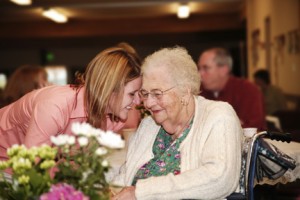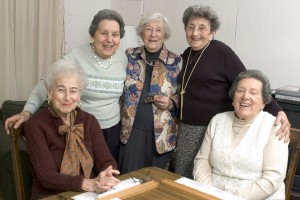Older investors are at risk for “diminished financial capacity,” or a decline in the ability to manage money and other assets in one’s own best interests. Such a decline is a problem in itself, and it also may make investors more vulnerable to fraudulent investments and other forms of financial abuse. 
In a recent bulletin, the Securities and Exchange Commission (SEC) stressed the importance of planning for the possibility of diminished capacity. In order to minimize difficulties for investors and their families, the SEC recommends taking these steps:
- Organize important documents in an accessible, safe location so that they can be available to loved ones in an emergency, and keep them up to date. This includes bank and brokerage statements and account information, mortgage and credit information, insurance policies, Social Security and pension information, and contact information for your attorneys and financial and medical professionals.
- Provide financial advisers with trusted emergency contacts. Make sure that investment advisers or brokers have the contact information of a trusted loved one they can contact if they suspect something is amiss or if they are unable to get in touch with you.
- Consider a durable financial power of attorney. Such a document gives a trusted person the power to make financial decisions on your behalf. It is called “durable” because it remains in effect if you become incapacitated. You may still revoke or alter it while you retain capacity.
- Consider involving a loved one in your financial affairs. If you become incapacitated, it will be much easier for a loved one to help out if he or she already has some idea of your finances. For instance, you may wish to consider having duplicate statements sent to a friend or relative.
- Speak up if something is amiss. If you feel that someone is trying to take advantage of you financially, or you are having trouble with managing your affairs, talk about it with someone you trust. General elder abuse can be reported by calling the Eldercare Locator at 1-800-677-1116. Suspected elder financial abuse involving investment advisers or brokers can be reported by calling the SEC at 1-800-732-0330.
Learn more about our services by visiting www.elderlawnewyork.com.
Was this article of interest to you? If so, please LIKE our Facebook Page by clicking here.





 While cognitive declines associated with Alzheimer’s diseases and other dementias are well-known, most people are unaware that seniors without dementia are also at risk for cognitive impairment, particularly in financial issues.
While cognitive declines associated with Alzheimer’s diseases and other dementias are well-known, most people are unaware that seniors without dementia are also at risk for cognitive impairment, particularly in financial issues.

 The Sarah Neuman Center at Jewish Home has introduced the NightCare program designed to comfort and engage elders with this level of dementia, and to provide respite for their caregivers. Offered several nights per week, from 7 PM to 7 AM, the NightCare program is staffed by experienced, caring professionals like Ruth Mederski, LPC. She explains, “At night when these seniors can become more anxious, we are there to give reassurance.”
The Sarah Neuman Center at Jewish Home has introduced the NightCare program designed to comfort and engage elders with this level of dementia, and to provide respite for their caregivers. Offered several nights per week, from 7 PM to 7 AM, the NightCare program is staffed by experienced, caring professionals like Ruth Mederski, LPC. She explains, “At night when these seniors can become more anxious, we are there to give reassurance.”

